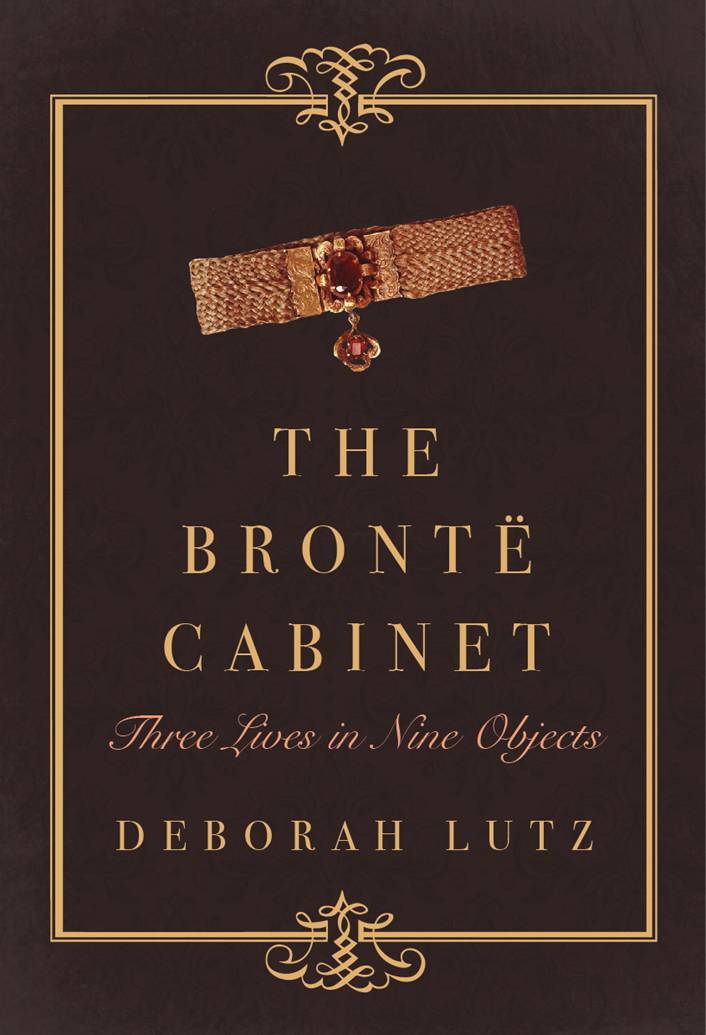The Brontë Cabinet: Three Lives in Nine Objects, by Deborah Lutz - book review
Norton - £17.99

Your support helps us to tell the story
From reproductive rights to climate change to Big Tech, The Independent is on the ground when the story is developing. Whether it's investigating the financials of Elon Musk's pro-Trump PAC or producing our latest documentary, 'The A Word', which shines a light on the American women fighting for reproductive rights, we know how important it is to parse out the facts from the messaging.
At such a critical moment in US history, we need reporters on the ground. Your donation allows us to keep sending journalists to speak to both sides of the story.
The Independent is trusted by Americans across the entire political spectrum. And unlike many other quality news outlets, we choose not to lock Americans out of our reporting and analysis with paywalls. We believe quality journalism should be available to everyone, paid for by those who can afford it.
Your support makes all the difference.There’s something hugely appealing about tracing the expansiveness of a life through the tininess of an object. It’s not just that the most insignificant thing can become deeply meaningful; its existence can also be a way of linking the art and the life in a way that biography is sometimes wary of doing. In her consideration of objects such as the desk box and the miniature, hand-made book, Lutz makes connections that are effective and often full of enjoyable speculation.
For example, when she assesses the value of the desk box, a small mobile desk unit, to the Brontës, she writes, “The Brontë sisters probably took their desk boxes with them to their teaching and governess jobs. Anne described a horrid situation with a desk in Agnes Grey, likely based on her own experience.” In that novel, Grey’s revolting charges try to throw her desk box, where she contains all her treasures, out of the window. Similarly, Lutz argues for a more ambiguous sexual identity for Charlotte on account of “fugitive letters”, that is, letters sent with seals or “mottoes”, which seem like text messages today with their shorthand: “ICUR/temptation” for “I see you are above temptation”. She sees a mirroring in the passionate letters Charlotte wrote to her friend, Ellen Nussey, and their often sharing a bed, with the passionate friendship the heroine of Shirley has with her friend, Caroline.
Emily’s even more ambiguous sexuality is teased out through the walking stick. Lutz cannot be sure that Emily even used one, but she links this item to Emily’s status as a “renegade woman”, out walking the moors alone when only the most daring women would dream of doing such a thing. Lutz stresses that Emily was given the nickname “the Major”, because of her “assertive, masculine ways”, and in her chapter on Emily’s dog, Keeper, assesses Heathcliff in Wuthering Heights through this double sexual identity (hinting that Heathcliff, in wanting to absorb Cathy, could be both male and female. Was this an expression of Emily’s own desire?).
This is a fun as well as a scholarly way to examine the art and the life. Innocuous objects take on erotic implications when linked with the body, as she shows with the miniature hand-made books: printed paper had different uses in the Brontë era, even recycled as toilet paper. There are tragic overtones, too: the crafting of such tiny books after the deaths in childhood of Maria and Elizabeth became a “kind of consolation”, as though the body of the book could replace the body of the now-absent sister. In looking at the Brontës through their most precious possessions, Lutz lets us sneak a peek at their inner lives as well as their outer ones, in a sympathetic and informative way.
Join our commenting forum
Join thought-provoking conversations, follow other Independent readers and see their replies
Comments